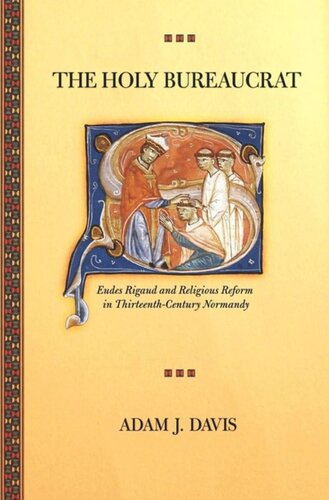

Most ebook files are in PDF format, so you can easily read them using various software such as Foxit Reader or directly on the Google Chrome browser.
Some ebook files are released by publishers in other formats such as .awz, .mobi, .epub, .fb2, etc. You may need to install specific software to read these formats on mobile/PC, such as Calibre.
Please read the tutorial at this link: https://ebookbell.com/faq
We offer FREE conversion to the popular formats you request; however, this may take some time. Therefore, right after payment, please email us, and we will try to provide the service as quickly as possible.
For some exceptional file formats or broken links (if any), please refrain from opening any disputes. Instead, email us first, and we will try to assist within a maximum of 6 hours.
EbookBell Team

4.1
50 reviewsIn a book that offers a fresh perspective on the complex relationship between thirteenth-century institutional power and evangelical devotion, Adam J. Davis explores the fascinating career of Eudes Rigaud, the Franciscan theologian at the University of Paris and archbishop of Rouen. Eudes's Register, a daybook that he kept for twenty-one years, paints a vivid picture of ecclesiastical life in thirteenth-century Normandy. It records the archbishop's visits to monasteries, convents, hospitals, and country parishes, where he sought to correct a wide range of problems, from clerics who were unchaste, who gambled, and who got drunk, to monasteries that were financially mismanaged and priests who did not know how to conjugate simple Latin verbs.
Davis describes the collision between the world as it was and as Eudes Rigaud wished it to be, as well as the mechanisms that the archbishop used in trying to transform the world he found. The Holy Bureaucrat also reconstructs the multifaceted man behind the Register, reuniting Eudes Rigaud the intellectual, Franciscan preacher, church reformer, judge, financial manager, and trusted councillor to King Louis IX. The book traces the growth of a complex bureaucracy in Normandy that insisted on discipline and accountability and relied on new kinds of written administrative records. The result is an absorbing study of the interplay between religious values and practices, institutions and individuals during the age of Saint Louis.